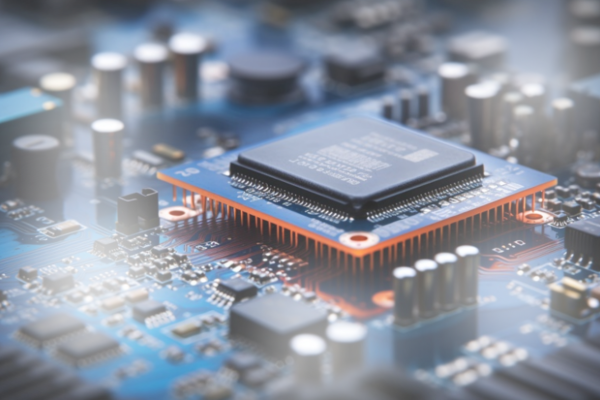Understanding USB-C Quick Charge: Technology, Benefits, and Applications
With the increasing demand for fast and efficient charging solutions, USB-C Quick Charge technology has become a game-changer in the consumer electronics industry. From smartphones and laptops to tablets and gaming consoles, USB-C Quick Charge enables rapid power delivery, reducing charging times significantly compared to traditional charging methods.
1. What is USB-C Quick Charge?
USB-C Quick Charge refers to fast-charging technology that utilizes the USB Type-C interface along with advanced power delivery protocols to charge devices at much higher speeds than conventional USB charging.
Key Features of USB-C Quick Charge:
· Higher Power Output: Supports up to 100W (20V/5A) via USB Power Delivery (USB PD).
· Fast Charging Speeds: Charges devices significantly faster than older USB-A chargers.
· Universal Compatibility: Works with various devices, including smartphones, tablets, laptops, and gaming consoles.
· Smart Power Management: Dynamically adjusts voltage and current based on the device’s requirements.
2. How Does USB-C Quick Charge Work?
Traditional USB charging provides a fixed 5V output, typically at 0.5A to 2A, resulting in slower charging speeds. USB-C Quick Charge, however, leverages advanced charging protocols to optimize power delivery.
Key Technologies Enabling USB-C Quick Charge:
USB Power Delivery (USB PD):
o A universal charging protocol that increases power output dynamically up to 100W (20V/5A).
o Allows devices and chargers to negotiate power levels, optimizing charging efficiency.
o Used in laptops, smartphones, and other high-power devices.
Qualcomm Quick Charge (QC):
o Proprietary fast-charging standard developed by Qualcomm.
o Works with USB-C and USB-A ports but is enhanced when paired with USB-C PD.
o Supports higher voltage levels (9V, 12V, 20V) for faster charging.
Programmable Power Supply (PPS):
o A smart charging protocol within USB PD 3.0 that dynamically adjusts voltage and current in real time.
o Reduces heat generation and enhances battery life.
o Found in high-end smartphones and gaming devices.
GaN (Gallium Nitride) Chargers:
o Next-generation charging technology replacing silicon-based chargers.
o Enables higher efficiency, faster charging, and compact charger designs.
o Common in high-power USB-C Quick Charge adapters.
3. Benefits of USB-C Quick Charge
Faster Charging Times
· USB-C Quick Charge significantly reduces charging duration.
· Example: A USB-C PD charger can charge a smartphone from 0% to 50% in 30 minutes, compared to traditional chargers taking over 90 minutes.
Universal Compatibility
· USB-C Quick Charge works across multiple devices:
o Smartphones (iPhone, Samsung Galaxy, Google Pixel)
o Tablets (iPad Pro, Samsung Tab)
o Laptops (MacBook, Dell XPS, Lenovo ThinkPad)
o Gaming Consoles (Nintendo Switch, Steam Deck)
Smart Power Adjustment
· Dynamically adjusts voltage and current, preventing overcharging, overheating, and battery degradation.
· Extends battery lifespan while optimizing charging efficiency.
Compact and High-Power Charging
· GaN-based USB-C Quick Charge adapters are smaller and more powerful, replacing bulky laptop chargers.
· Example: A 65W GaN charger can charge a MacBook and a smartphone simultaneously.
Enhanced Safety and Efficiency
· Integrated safety features include:
o Overvoltage Protection (OVP)
o Overcurrent Protection (OCP)
o Temperature Control
o Short-Circuit Protection
4. USB-C Quick Charge vs. Traditional Charging
Feature | Traditional USB Charging | USB-C Quick Charge |
Power Output | 5V/0.5A to 5V/2A (max 10W) | Up to 100W (20V/5A) |
Charging Speed | Slow | 2-4x Faster |
Voltage Adjustment | Fixed 5V | Dynamic (5V, 9V, 12V, 15V, 20V) |
Heat Generation | High in extended charging | Lower due to smart power management |
Device Compatibility | Limited to low-power devices | Universal (phones, laptops, tablets, gaming devices) |
Charger Size | Bulky | Compact (especially GaN chargers) |
5. Common Applications of USB-C Quick Charge
Smartphones and Tablets
· Major smartphone brands like Apple, Samsung, and Google support USB-C Quick Charge.
· iPhone 15 series now fully adopts USB-C charging, making it more efficient and versatile.
· iPad Pro supports USB-C PD for faster charging and data transfer.
Laptops and Ultrabooks
· MacBook Air & Pro, Dell XPS, HP Spectre, Lenovo ThinkPad all support USB-C PD charging.
· Eliminates the need for proprietary laptop chargers.
Gaming Consoles and Accessories
· Nintendo Switch supports USB-C PD for fast charging and dock connectivity.
· Gaming controllers, VR headsets, and portable consoles benefit from USB-C Quick Charge.
Power Banks and Portable Chargers
· High-capacity USB-C PD power banks can charge laptops and smartphones on the go.
· Example: A 20,000mAh power bank with USB-C PD can charge a MacBook Air fully.
Car Chargers and Wireless Charging Pads
· USB-C Quick Charge car chargers allow fast charging while driving.
· Wireless chargers now integrate USB-C PD for MagSafe and fast wireless charging.
6. The Future of USB-C Quick Charge
With the rapid evolution of fast charging technology, USB-C Quick Charge is expected to continue improving:
· Higher Wattage Charging: USB PD 3.1 now supports 240W charging, enabling future high-power applications.
· Better Heat Management: Improved PPS technology will further optimize efficiency.
· Universal Standardization: More brands will adopt USB-C as the universal charging standard, eliminating proprietary chargers.
· Integration with IoT and Smart Devices: More wearables, smart home devices, and electric vehicles will utilize USB-C charging.
USB-C Quick Charge is a revolutionary advancement in charging technology, offering faster speeds, greater efficiency, universal compatibility, and improved safety. Whether you're charging a smartphone, laptop, or gaming console, USB-C Quick Charge ensures reliable and rapid power delivery.
As more manufacturers adopt USB-C and fast-charging standards, we can expect a future where one charger powers all devices, simplifying our tech lives while reducing e-waste and improving charging efficiency.







